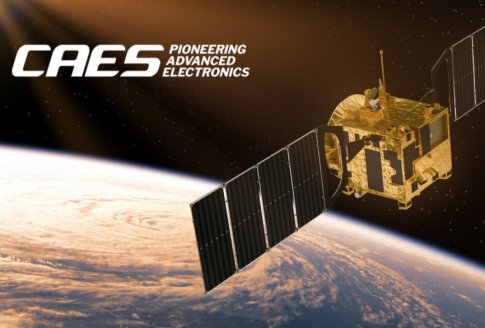CAES Receives Contract from Vinnova to Advance High Performance RISC-V Space Computing
ARLINGTON, Va. -- July 19, 2021 – CAES, a leader in advanced mission-critical electronics for aerospace and defense, announced today that it has been awarded a contract from Vinnova, a Swedish government agency dedicated to promoting innovation, to develop next generation RISC-V based space computing capabilities. The results from this development will allow future CAES microprocessors to enable spacecraft control, create high performance payload processing and will feature timing isolation for software applications and prevent interference from other parts of the system.
The new NOEL-V fault-tolerant, 64-bit processor core is based on the open RISC-V instruction set architecture and builds upon CAES’ heritage with the SPARC/LEON architecture. It marks the newest addition to CAES’ trusted fault tolerant space computing product portfolio.
“We look forward to working with Vinnova and our project partners to enhance our RISC-V processor technology to meet our customers’ next generation space program needs,” said Mike Kahn, President and CEO of CAES. “Our space systems team is fully prepared to address the market’s growing need for cybersecurity and create the next generation of trusted, radiation hardened processors with both RISC-V and SPARC/LEON architectures to enable low risk, high performance implementation for space applications.”
“The results of this initiative with Vinnova will inform our future radiation-hardened NOEL-V microprocessor development in collaboration with the European Space Agency,” said Sandi Habinc, General Manager of Gaisler Products, CAES. “Our team plans to publish the results and disseminate the technology to benefit the industry at large.”
Once complete, a multi-core NOEL-V processor development platform will be tested through a partnership with Chalmers University of Technology and atsec, an independent laboratory focused on information security, to ensure utmost security towards higher software layers.
“Chalmers’ collaboration on the LEON processor development dates back to 1997," said Stefan Bengtsson, President and CEO of Chalmers University of Technology. “We are excited to continue this long-standing collaboration on the RISC-V processor architecture as part of the Vinnova activity.”

About CAES
CAES is a pioneer of advanced electronics for the most technologically challenging military and aerospace trusted systems. As the largest provider of mixed-signal and radiation-hardened technology to the aerospace and defense industry, CAES delivers high-reliability RF, microwave and millimeter wave, microelectronic and digital solutions that enable our customers to ensure a safer, more secure planet. On land, at sea, in the air, in space and in cyberspace, CAES’ extensive electronics and enhanced manufacturing capabilities are at the forefront of mission-critical military and aerospace innovation.
Related Semiconductor IP
- RISC-V Debug & Trace IP
- Gen#2 of 64-bit RISC-V core with out-of-order pipeline based complex
- Compact Embedded RISC-V Processor
- Multi-core capable 64-bit RISC-V CPU with vector extensions
- 64 bit RISC-V Multicore Processor with 2048-bit VLEN and AMM
Related News
- CAES Gaisler Signs Contract with the European Space Agency for New Advanced Space Processor
- The European Space Agency (ESA) has awarded a contract to CAES, in the frame of the ARTES Competitiveness & Growth programme, to develop System-on-Chip for space applications
- CAES Collaborates with Lattice Semiconductor to Provide Radiation-Tolerant FPGAs for Distributed Satellite Computing Applications
- CAES Introduces Family of Radiation Hardened NOR Flash Memories for Space FPGAs
Latest News
- RaiderChip showcases the evolution of its local Generative AI processor at ISE 2026
- ChipAgents Raises $74M to Scale an Agentic AI Platform to Accelerate Chip Design
- Avery Dennison announces first-to-market integration of Pragmatic Semiconductor’s chip on a mass scale
- Ceva, Inc. Announces Fourth Quarter and Full Year 2025 Financial Results
- Ceva Highlights Breakthrough Year for AI Licensing and Physical AI Adoption in 2025